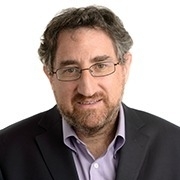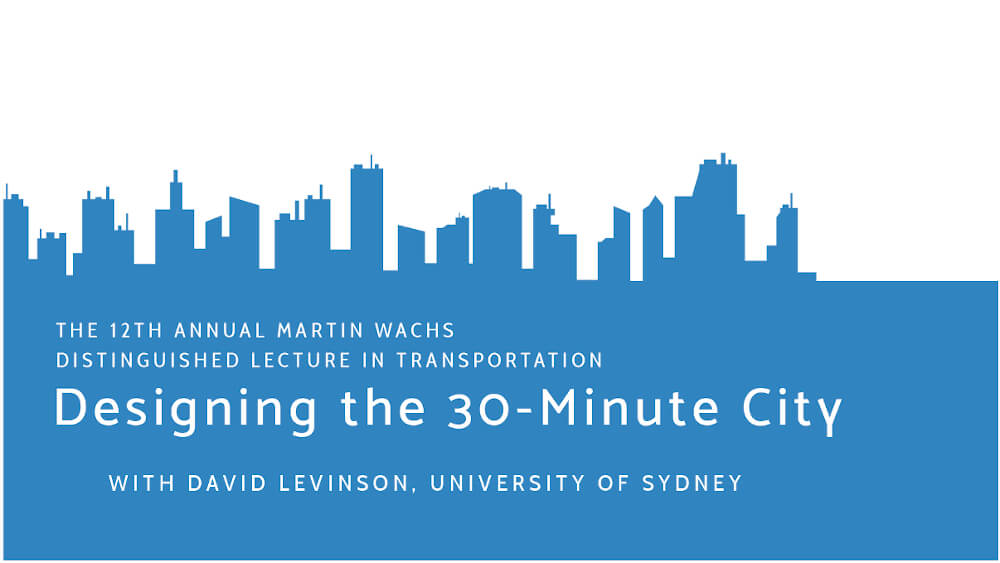Designing the 30-Minute City
Martin Wachs Lecture || May 16, 2019 || UCLA
Presented by: David Levinson, University of Sydney
 The 12th annual Martin Wachs Distinguished Lecture will be held May 16 at UCLA Luskin School of Pubic Affairs. David Levinson is professor in the School of Civil Engineering at the University of Sydney and adjunct faculty in the Department of Civil, Environmental, and Geo-Engineering at the University of Minnesota. The 30-minute isochrone has long defined people’s use of cities — from ancient times through the trams era to modern times. Networks and land use co-evolve with technology subject to the constraints of available time. There are opportunities (low-hanging fruit) to use design to reduce the costs of travel and thus increase access for relatively little monetary outlay. This talk discusses both the measurement of accessibility, why it matters, and how it might affect traveler behavior, institutional behavior, and public policy. Looking at data from rail and tram development in Sydney from the 1800s and Australia today, implications about the effects of accessibility are described.
The 12th annual Martin Wachs Distinguished Lecture will be held May 16 at UCLA Luskin School of Pubic Affairs. David Levinson is professor in the School of Civil Engineering at the University of Sydney and adjunct faculty in the Department of Civil, Environmental, and Geo-Engineering at the University of Minnesota. The 30-minute isochrone has long defined people’s use of cities — from ancient times through the trams era to modern times. Networks and land use co-evolve with technology subject to the constraints of available time. There are opportunities (low-hanging fruit) to use design to reduce the costs of travel and thus increase access for relatively little monetary outlay. This talk discusses both the measurement of accessibility, why it matters, and how it might affect traveler behavior, institutional behavior, and public policy. Looking at data from rail and tram development in Sydney from the 1800s and Australia today, implications about the effects of accessibility are described.
Levinson received the 1995 Tiebout Prize in Regional Science for the paper “Location, Relocation, and the Journey to Work.” From 1989 to 1994, he worked as a transportation planner, developing integrated transportation and land-use models for Montgomery County, Maryland. He then applied those models for multimodal network planning and growth management. Levinson has authored or edited several books, including Spontaneous Access, The End of Traffic and the Future of Transport, The Transportation Experience, and Planning for Place and Plexus, as well as numerous peer reviewed articles. He is the editor of the Journal of Transport and Land Use. He has a PhD in transportation engineering from Berkeley and his dissertation “On Whom the Toll Falls,” argued that local decision-making about managing and financing roads will most likely lead to direct road pricing, which will allow the efficient allocation of scarce road resources (and thus reduce congestion).
The full recording can be found here.



